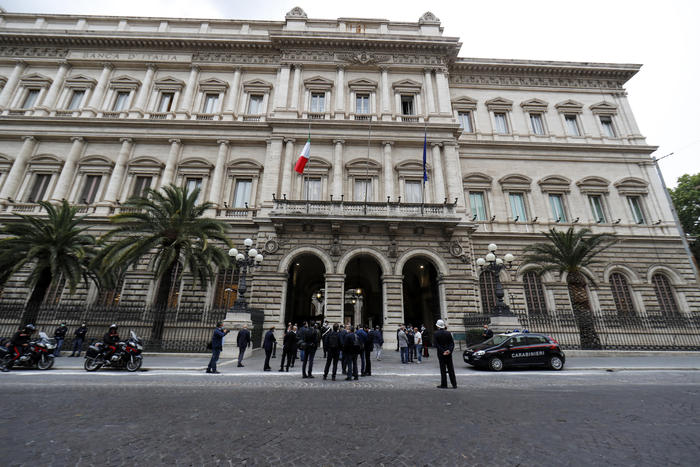Enlarge image
Freight train with cars: Three consecutive quarters of growth
Photo: Hendrik Schmidt / dpa
The German economy did better than expected in 2022.
Despite the energy price shock, record inflation and delivery bottlenecks, the gross domestic product (GDP) grew by 1.9 percent compared to the previous year, according to an initial estimate by the Federal Statistical Office.
Economists had expected slightly less on average.
In 2021, the German economy had grown by 2.6 percent.
According to economists, the recession feared for 2023 will be comparatively mild, with a drop in GDP of less than one percent.
Some institutes are even expecting slight economic growth because the state is relieving private individuals and companies with billions in the high energy costs.
In all likelihood, however, this will also increase the national deficit in 2023.
According to calculations by economists, the federal, state, local and social security funds spent more money than they received in the past year.
Nevertheless, with a government deficit of around two percent, Germany is likely to comply with the European debt rule again after two years of corona: The European Stability and Growth Pact allows the EU states to have a budget deficit of no more than three percent and a total debt of no more than 60 percent of nominal GDP.
The EU countries have temporarily suspended these rules because of expensive corona aid programs.
It is planned that the pact will take effect again regularly from 2024.
mik/dpa-AFX














